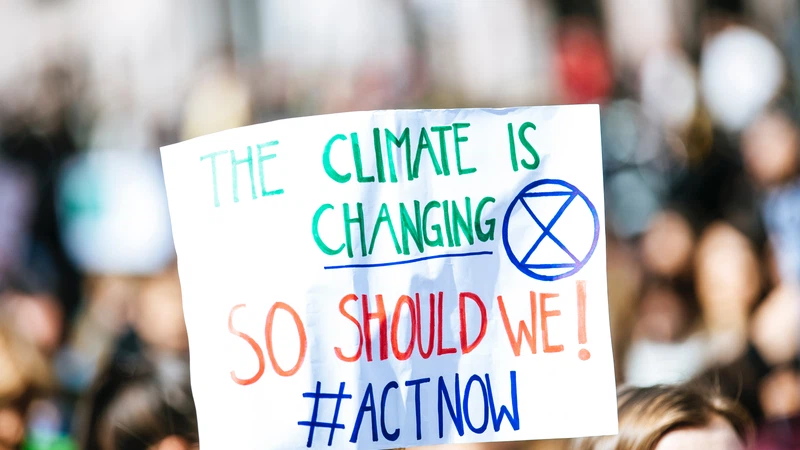The New York Climate(NYC) Week was yet another efficacious climate event. It was held from the period of 17th to 24th of September, running in conjunction with the United Nations General Assembly. It’s one of the largest annual climate global events that brings together more than 400 activities across the city of New York. This year it provided an important stage for diverse leaders from various sectors to engage in dialogue, share innovative strategies and mobilize resources to ensure that climate action is inclusive. Most significantly, it marked the start of an incredibly important couple of months of climate discussions. Many of the people who are determined to speed up climate change ensured to attend both physically and online, with Helen Clarkson opening the NYC week with high remarks on how together We Can and We Will, counter climate challenges. We agree our collaborative efforts must be toward ending the error of fossil fuels despite the fact that we are dependent on it for many years.

We know climate discussions plus possible interventions have already been ongoing for the last 15 years, but it seems strange because each time we imagine we are moving in the right direction, the planet says otherwise. Sadly, in Africa we have recently witnessed the devastating floods in Libya and cyclone in Malawi. In Canada and Hawaii, the forests were reduced to ashes due to deadly wildfires which heated up the nearby communities to unbearable temperatures. All these climate disasters are speaking loud and clear that the time to act is now or never. Climate action is moving very slowly across the globe and we demand that those in positions of power must act without delay. They should consider channelling investment in climate adaptation and be held accountable. Agape Earth Coalition demonstrated and emphasized our relentless determination as African Climate activists during NYC week. We had online climate storms throughout the week and very empowering educational twitter space discussions. Where we discussed areas to focus on the road to COP28, in regards to the African perspective on Climate Adaptation solutions. This included pushing for involvement of people at local level by bridging their climate knowledge gap and in turn they can be the clear voices of proof to the climate crisis. Hence cause a quick climate action.
Climate change needs to start with practical solutions at the lowest possible level, something as basic as electricity in the form of renewable energy should be readily available in all African communities. Africa’s sprawling cities have erratic supplies of electricity and large swaths of the continent’s rural areas have no power at all. According to the International Energy Agency, in 2021, 43% of Africans — about 600 million people — lacked access to electricity with 590 million of them being in sub‐Saharan Africa. How can we talk about equitable development and miss out on this?
Secondly, having resilience insurance schemes in Africa must be paramount, these should fight the dire poverty rates that have been aggravated considerably by climate disasters. We African defenders agree that most of the adaptation and resilience projects are very expensive for our economies, which are already struggling with heavy national security and health budgets. The Global North has a critical role to play in enabling African Nations to reach emission reduction targets and adapt favourably to the Climate crisis. We must aim to intensify commitments and engagement with the Global North and private investors to raise reasonable climate finance, plus assist in mainstreaming and scaling-up of African climate action. We can do this through transforming climate action into key investments in important sectors, including climate-smart health and education, climate smart agriculture, landscape management(end deforestation), and build climate-resilient economies. In the coming COP28, Agape earth Coalition is advocating for the African people to push faster in terms of climate ambition by setting our priorities right, forge multilateral collaborations while at these international platforms, and endeavouring to enhance development of innovative climate action programs in our continent.
On the 22nd of September, the Ugandan team of the coalition volunteered to participate in planting 200 trees of different types including fruits and compound trees in Pallisa, one of the districts in Eastern Uganda, that struggles with the effects of the climate crisis. This was to signify unity to other climate activists across the globe and draw us one step close to net zero. We had a very interactive community involvement where we taught locals mainly women on the causes of global warming and how to mitigate it. Many of them had deranged perspectives about the seasonal climate changes like spiritual beliefs, but were also very open to being enlightened to the truths of climate change and what role they had to play individually. This proved that climate information should be simplified in languages understood by people at the lowest level. We acknowledge that knowledge is power and can mark the beginning of change.
Good enough there are other huge positive strides being made in climate action, evidenced by the billions of money already committed by the US, China, and EU to boost green technology and energy security. Unfortunately most of that money is not accessed by the people who bear the brunt of the climate crisis. As Climate activists we no longer only want to hear about climate solutions, but need urgent implementation of those solutions in our communities. We will continue to maintain the global momentum around climate action even though we might face harassment, criminalization and lethal violence. We will keep focussed on the growth we can achieve while we overcome these obstacles. Our voices are the only accountability that will safeguard forests, leave fossil fuels in the ground and protect our people. We Will. We Can.
